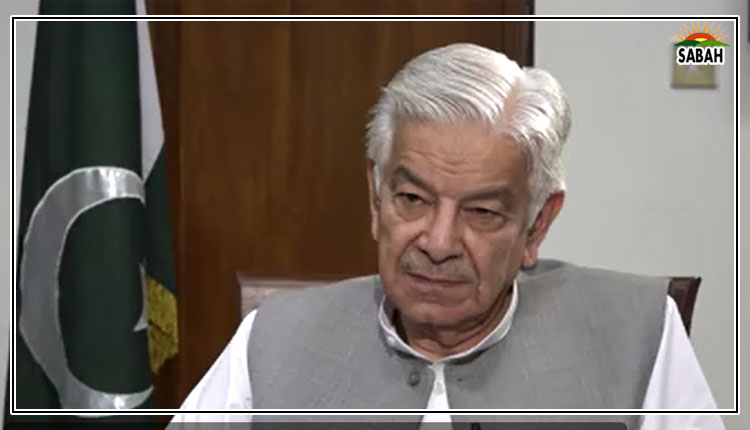Separation of powers in jeopardy? …Omer Memon
A lot was said and debated over the past few weeks about a mysterious ‘constitutional package’ being introduced to amend the constitution of the Islamic Republic of Pakistan for the twenty-sixth time since the year 1973.
A bill amending the constitution – titled the Constitution (Twenty-sixth Amendment) Act, 2024 – was finally introduced and passed, in the wee hours of Monday morning (October 21, 2024), by both houses of parliament. By way of comparison, there have been 27 amendments to the constitution of the US since it was put into operation in March 1789.
In terms of constitutional history, Pakistan has always had a very bitter experience. Although Pakistan came into being as an independent state in the year 1947, it was not until March 1956 that the country adopted its own first constitution (the 1956 constitution). Unfortunately, the same only lasted for two years. Major General Iskander Mirza abrogated the 1956 constitution, and the Supreme Court of Pakistan validated the extra-constitutional actions.
General Ayub (the then president of Pakistan) promulgated a new constitution in March 1962 (1962 Constitution) which envisaged a federal state with a presidential form of government. The 1962 constitution was abrogated by General Yahya Khan (the then-president) in March 1969.
In 1973, a new constitution was introduced which is now the supreme law of Pakistan. The most prominent characteristic of this constitution is that it included proposals from all political parties (including the opposition) and was ratified unanimously on April 19, 1973 (coming into effect on August 14, 1973).
Unfortunately, four years later (in 1977), the 1973 constitution was first suspended and held in abeyance under General Zia (restored in March 1985). The 1973 constitution was again suspended and held in abeyance (during the year 2007) under General Musharraf. Evidently, when it comes to the constitution, Pakistan has had a somewhat checkered history.
The Constitutional Amendment Act passed by parliament in haste appears to be a much watered-down version of the earlier drafts. The drafts being earlier shared (or rumoured) appeared to be above and beyond just a mere amendment to the constitution and attempted to rewrite or rather introduce a new constitution, in as much as it attempted to entirely take away the separation of powers between the three pillars of state (the executive, the legislature and the judiciary).
The doctrine of separation of powers requires that the principal institutions of state – the executive, legislature and judiciary – should be clearly divided to safeguard citizens’ liberties and guard them against any arbitrary or oppressive government or rule. Separation of powers ensures a system of checks and balances so that each pillar keeps a check on the powers of other pillars and that no one pillar becomes too powerful.
Checks and balances via the separation of powers are critical to ensure the spread of power between those who make the law, those who implement the law and those who resolve disputes about the law. The Constitutional Amendment Act entirely disrupts the separation of powers. The Act approved by parliament shifts the power to a parliamentary committee for hand-picking the chief justice. The Judicial Commission (majority comprising parliamentarians) shall determine which superior court judges will hear constitutional matters and will also evaluate the performance of Supreme Court and high court judges.
The fundamental problem and the core issue, in the Act or the previous drafts, lies in the fact that the intent behind this hurried constitutional amendment appears to be nothing but a clear attempt to have control over the judiciary by the executive and the legislature. The amendments, hence, are not only a huge blow to judicial independence but shall have the effect of politicising the judiciary and taking away the separation of powers which is the cornerstone of any constitution.
The Constitutional Amendment Act includes 22 amendments, which is less than half of over 50 provisions that were part of the earlier drafts. The Act approved by parliament still leaves the Supreme Court as the apex court of the country (and does not create any parallel courts of superior hierarchy). It, however, directly attacks judicial independence against the spirit of the constitution which originally provided for a free and independent judiciary.
Undoubtedly, our judicial system has failed to deliver justice in a timely manner and much like our passport which is ranked fourth worst in the world, our judicial ranking (as per the World Justice Project) is ranked 130th across 142 countries (the 12 countries behind Pakistan include the likes of Afghanistan, Sudan, Congo amongst others). However, taking away judicial independence and making it subservient to the executive and legislature will only add more to our problems rather than resolving them.
If the legislature were actually serious about improving our judicial system and bringing about any changes and actual reforms, it ought to have revisited the British-era legal system still in place today in Pakistan – in the form of the Civil Procedure Code (1908); the Criminal Procedure Code (1898), the Arbitration Act (1940) and many other laws which require parliament’s attention in bringing these laws at par with modern world needs and dynamics and also in line with global practices.
The proposed amendments to the constitution did not receive much resistance, except from the legal community which strongly objected to this blow to Pakistan’s democracy and its constitutional order. The Act having received the assent of the president of Pakistan has come into effect and will soon be under challenge before the Supreme Court which has the power to strike down constitutional amendments
Courtesy












